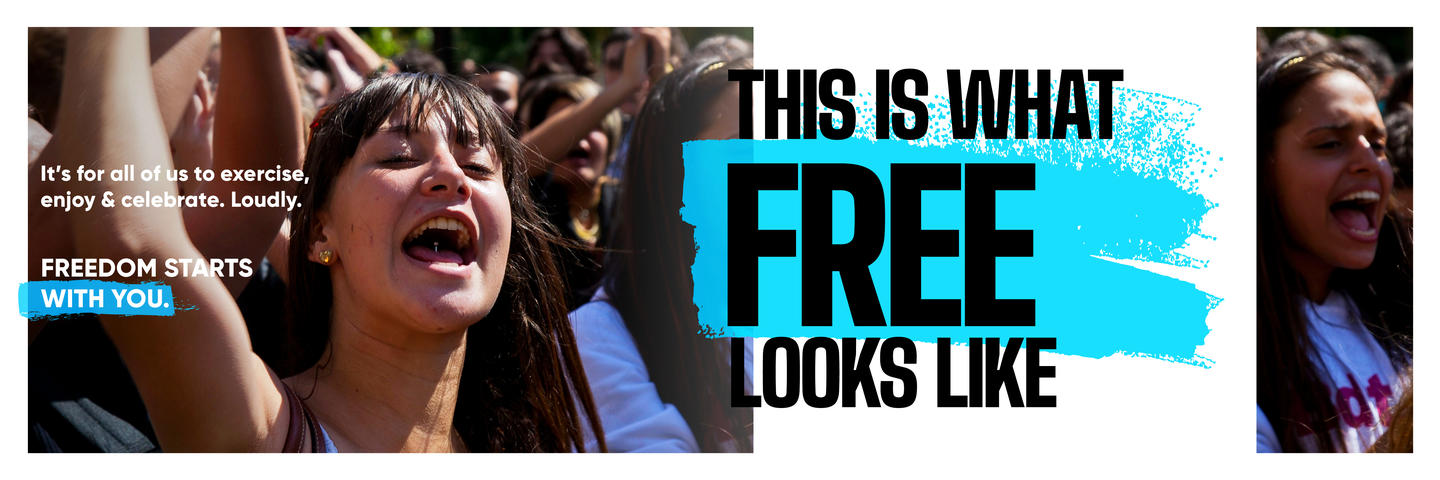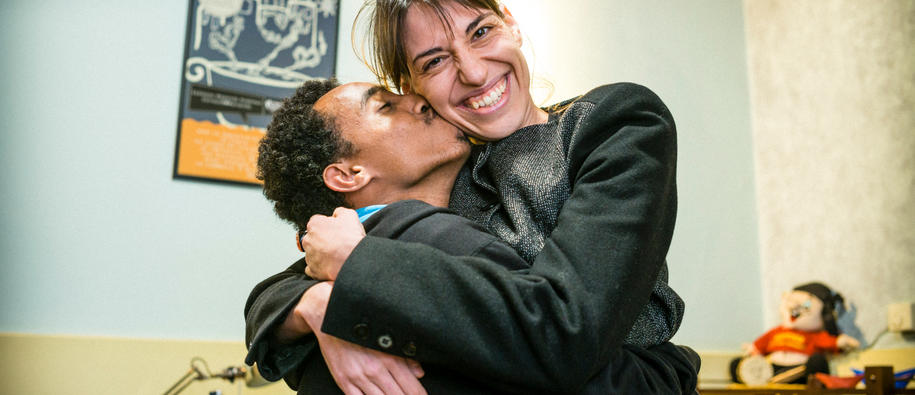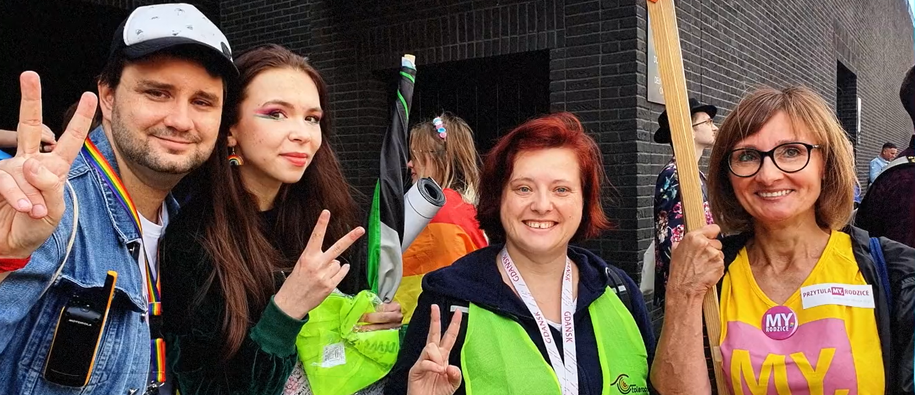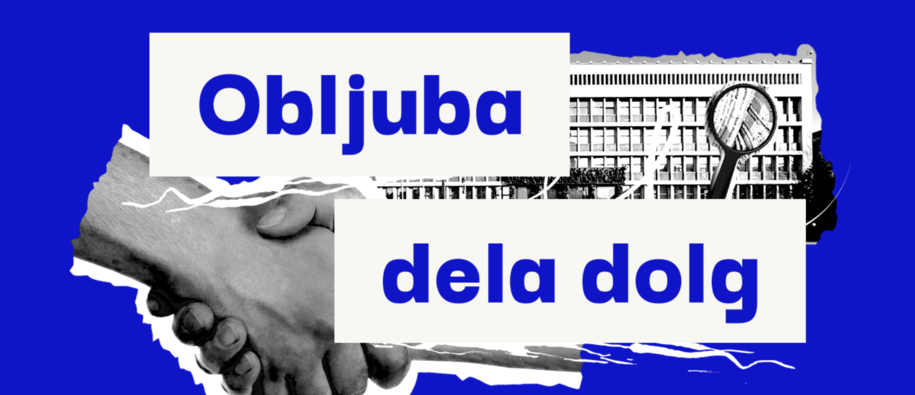Within the European Union, individual freedoms such as respect for private life, freedom of thought, religion, assembly, expression and information are protected by the EU Charter of Fundamental Rights. However, sometimes it takes efforts to guarantee freedom for all European citizens. Throughout Europe, multiple initiatives are taking up this challenge. Here’s a few examples of projects, supported through the EEA and Norway Grants, that focus on freedom and the importance of protecting it.
Making sure every voice is heard
According to the UNHCR, there were about 2.6 million refugees living in the European Union at the end of 2019. That’s 2.6 million people with rights, opinions, feelings and memories who have a voice - and should be heard.
The Centre for Legal Aid Voice in Bulgaria believes that to ensure freedom in Europe, everyone should have access to the justice system. And that includes refugees and migrants who are finding their way into the country. But although this principle is laid down by the law, it is not always applied efficiently on the ground. That’s why their team of experts provides free legal aid for refugees, migrants and asylum seekers. At the same time, they advocate for better practices both locally, in the receiving communities, and on the institutional level.
Combined, these activities are making a huge impact – not only on the people in need of help but also on the team itself. ‘I will never forget a family with two kids - the same age as my own kids - who were literally on the streets,’ says Diana Daskalova, who is co-founder of the project. ‘We had to provide them with solutions and give them hope. Now, after two years of working with them, they are giving us hope. And what’s the most unexpected part of my work is that I am a changed person as well.’
During the two years of the project, over 3,500 hours of free legal aid were offered to more than 400 migrants in Bulgaria. Together, they produced six policy briefs on pressing asylum and migration issues and more than 15 articles on this topic. All materials are freely available on the website migrant rights.eu.
And there’s more to come, says Diana: 'We’re happy to share that with the funding from the EEA and Norway Grants, we’re able to continue for another two years.'
Would you like to know more about this project? Visit the website for all information.
Becoming the engine for social change
While the previous project aims to give people their voice back, the next project helps people turn up the volume. Because being seen and heard can make it easier to guarantee our freedom to be who we are.
An important factor in the freedom of marginalised groups is the involvement of local and national governments. But to get a say in politics, representation is essential. According to the Polish Association for LGBTIQ ‘Tolerado’, that is exactly what’s missing in the smaller towns of the Pomorze region.
Their project Local leaders – an engine for social change is training a group of 10 community leaders to work with local authorities and to take on advocacy and watchdog roles in their LGBTIQ communities.
‘Queer people from small towns like Costigan, where I live, have no one who represents them.
They have no advocate, no spokesperson, they're just left alone,’ says Karolina, one of the participants in the project. ‘I’m excited that I can represent them.’
The project provides participants with the necessary know-how and tools to work with local government parties and devise new standards for an LGBTIQ friendly municipal service. This enables them to build a long-term, friendly and constructive collaboration with politics and organisations that promote equality. And that’s already making a great difference for many people, says Karolina:
'I use my channels to educate people about how it is to belong to the LGBT community. I can actually make an impact, especially on people who are close to me. I can see how their views are changing and how they are becoming more sympathetic and empathetic. So, yes, I think we're going in a good direction.'
Want to know more about their work? Find out more on their website.
Increasing accountability in politics
As the projects above have shown, safeguarding our freedoms is often a political matter. But how often do politicians make promises – and how often do they actually keep them?
This 'flexibility' between word and deed can undermine peoples’ votes and sometimes lead to mistrust in decision-makers and low voter turnouts. And in general, it causes a lack of political accountability at all governmental levels.
Throughout Europe, investigative journalists work tirelessly to bring us independent information – which is important for monitoring governments. But doing so can prove to be difficult, as is the case in some areas in Slovenia.
Photo credit: https://obljubadeladolg.si/
The project Promise made = debt unpaid looks at raising awareness about this and safeguarding accountability in Slovenian politics. It does so through an online platform that monitors the fulfilment of political promises. The platform serves as a source of information and inspiration for media reporting, a bulletin board, and a constant reminder that politicians can and should be held accountable.
‘There is a widespread belief that politicians don't keep their promises, which contributes to a lack of trust in the political system,’ says Matej Zwitter, one of the journalists involved in the project. ‘So what we are trying to do is track those promises as objectively as possible. We want to expose those who break the promises they made and to give credit to those who keep them.’
At the same time, the project equips journalists with new skills during hands-on workshops so they will be able to better protect the public interest. As a result, citizens will be significantly better informed and equipped to make the right decisions.
‘As journalists, we are championing the right to know and the right to information,’ says Matej, ‘which is a prerequisite for achieving or advancing any kind of freedom.’
Civil society starts here
These projects are only a few examples of what we can achieve when we work together. They’re supported by Iceland, Liechtenstein and Norway, through the EEA and Norway Grants. Our work in 15 European countries unite us around the values we share: freedom, dignity, equality, human rights, democracy, and rule of law.
Do you want to know more about these and other civil society projects? Visit eeagrants.org/civilsocietystartshere. Or do you have an idea for a project in your region? Visit eeagrants.org/apply-for-funding. Want to get more inspiration? Watch the video here.



